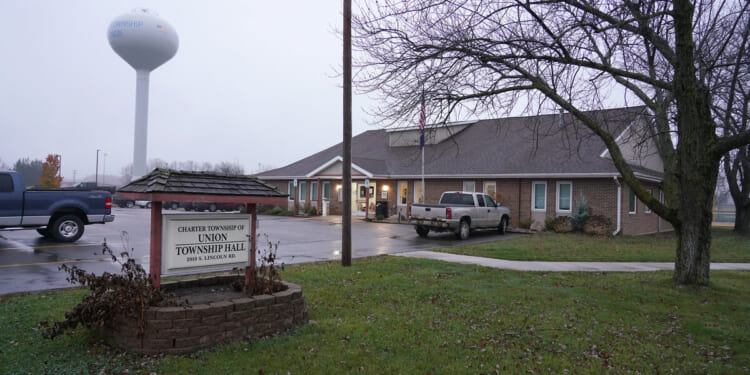The Middle Michigan Development Corporation will offer taxpayer funded incentives worth up to $2,000 to select Central Michigan University graduates who stay in the area, specifically in Mt. Pleasant or Union Township, according to WNEM news report.
The agency received a grant from the Michigan Growth Office to fund the program, which means all taxpayers are paying for it. For many reasons, practical and empirical, this is a bad idea. There are better alternatives.
One of the authors — LaFaive — is a former resident of Mt. Pleasant. This city was his home for years, and Union Township was his play area. We have spent decades researching and publishing on the subject of economic growth and development at the state and local level. The township and its people deserve to flourish. Unfortunately, paying recent graduates to stay in town is not the way to make this happen.
Practically, this program will do nothing to help the community or state. The grant size is tiny. It is unlikely to tip the decision of a recent college graduate, who will be more concerned with the type and renumeration of job offers than with the value of this incentive. Moreover, offering these grants implicitly advertises that the area is not attractive enough on its own to retain talent.
The desire to retain or expand the local population is understandable. Union Township’s population has declined by 7.1%, from 12,851 in 2010 to an estimated 11,945 in 2024, according to United States Census Bureau estimates. Michigan overall struggled with population growth during this period, but the state’s population still increased by 2.6%.
Why has the township fallen short? There are so many variables at work it’s difficult to tease out why the township has lagged even average state population growth. There are also several data limitations for those who try. Basic economic theory shows that there is an inverse relationship between the cost of just about anything and the quantity demanded of it. So, if township officials impose a particularly high cost of living, working and investing in the township, there will be less interest in doing so. A $2,000 subsidy won’t make much of a difference in the face of this reality.
Since last October the Mackinac Center has catalogued some of the ways the township raises costs on its citizens, entrepreneurs , builders and investors. The criticisms against Union Township include tax burdens, excessive fees, irrational and cost-prohibitive demands and foot-dragging on important decisions.
To date, we have interviewed 29 contractors, builders, investors, resident entrepreneurs and others. One of the most recent, a builder, told me that he has turned down business in the township — to the dismay of his would-be client — because it is so hard to work with the township government. “I avoid pulling permits there if I can help it,” he said by phone.
That is an instructive comment, and other township entrepreneurs say they now avoid investing time and treasure in the community. These are just anecdotes, but for such a small community there are too many of them to ignore.
It is worth pondering how many investments never occurred and how many people left or never moved to Union Township as a result of its reputation. Capital, financial and human, will go where it is welcome and stays where it is well treated, to paraphrase former Citicorp Chairman Walter Wriston.
Academic and other scholarly research here is also instructive. “Research shows the importance of greater economic freedom for fostering local business activity and making a location a more appealing place to live,” Mackinac Center adjunct scholar Hannah Kling concluded in a review of nearly 100 population-specific studies.
Economic freedom is an activity such as buying and selling, working, investing and making voluntary, mutually beneficial contracts with others. To the degree that governments like Union Township unnecessarily raise the cost of all this, less of it — and subsequent economic and population growth — will occur.
The state should not give taxpayer money for graduate retention to local economic development agencies in the first place. Doing so only robs many Peters to pay a few Pauls, who are paid not to move. There’s a mountain of evidence about determinants of population growth, and it often starts with economic opportunity, not incentive programs.
Instead, Union Township officials should work to overcome their reputation for difficult, demanding and slow service. It should improve its regulatory climate with an eye to efficient and customer-driven service. This will be much more difficult than handing out a $2,000 subsidy, but it is more likely to attract and keep talent and investment.











